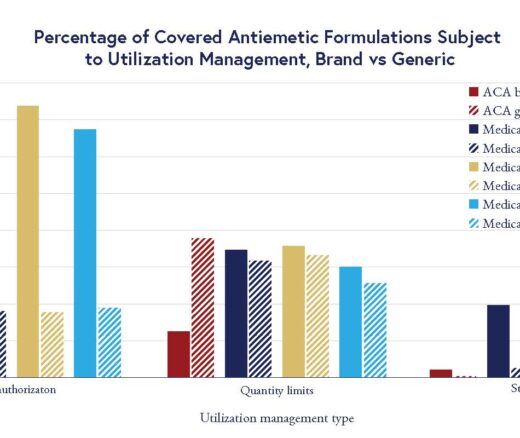
Medicare’s Hidden Fix for High Drug Costs
Medicare’s Payment Plan Can Ease Seniors’ Crushing Drug Costs but Medicare Buries it in the Fine Print
Health Care Access & Coverage | Health Equity
Blog Post
Produced in conjunction with the Population Aging Research Center at the University of Pennsylvania.
Access to high-quality health care differs for Black versus white Medicare Advantage enrollees, a reality that has been well documented. For example, a 2022 study by LDI Senior Fellow Norma Coe, LDI Executive Director Rachel M. Werner, and Sungchul Park, now at Korea University, showed inequities in access to 5-star Medicare Advantage plans: Black enrollees were offered fewer options for the higher-quality plans than white enrollees.
The research team recently investigated how this inequitable access to high-quality Medicare plans might affect health outcomes and published their findings in the December 2022 issue of Medical Care.
Using data on Medicare Advantage beneficiaries, the researchers identified hospitalizations for ambulatory care-sensitive conditions, such as asthma, high blood pressure, and diabetes. Hospitalization for these diseases can often be avoided with better outpatient care and disease management. The researchers then analyzed associations among avoidable hospitalizations and beneficiaries’ race, ethnicity, and Medicare Advantage plan characteristics. Plan characteristics included star ratings, which are assigned based on quality measures that include preventive care.
They found that Black Medicare Advantage enrollees had significantly higher rates of avoidable hospitalizations compared to white enrollees. Per every 10,000 enrollees, Black beneficiaries had 39.4 more hospitalizations for ambulatory care-sensitive conditions than white beneficiaries.
Together with the earlier findings from the same dataset that showed racial and ethnic minority groups had lower access to higher-quality Medicare Advantage coverage, the results suggest that the disparities in avoidable hospitalizations trace back to inequitable access to care, at least in part. Furthermore, this work supports the hypothesis that 5-star plans provide beneficiaries with more appropriate primary care, which in turn reduces health crises for chronic conditions that can lead to hospital admission, such as asthma, cardiovascular disease, and diabetes. And indeed, hospitalizations for ambulatory care-sensitive conditions were lower in higher-rated plans than lower-rated plans.
Disadvantages for Black Medicare Advantage beneficiaries pervaded the plan’s rating system: At each star level, Black enrollees had significantly more preventable hospitalizations than white enrollees. The study did not find differences in avoidable hospitalizations between white and Hispanic or Asian and Pacific Islander enrollees. Based on the previous study, this might be because these groups have similar access to the highest-rated Medicare Advantage plans.
The findings of this new study strengthen and extend the conclusions and recommendations of the researchers’ previous studies. Equalizing access to high-rated Medicare Advantage plans could have positive consequences for health care equity in general and specifically for reducing unnecessary hospitalizations, which has health care cost implications.
The authors recommend Medicare policy changes to offer more high-quality Medicare Advantage options in geographic areas that serve Black populations. To encourage the offering of high-quality plans in areas where they are currently scarce, they suggest adding social risk factors to risk adjustment and plan performance metrics. Further, the researchers call for continued work to improve access to care and decrease disparities within high-quality Medicare Advantage plans.

The study, Association of Medicare Advantage Star Ratings With Racial and Ethnic Disparities in Hospitalizations for Ambulatory Care Sensitive Conditions, was published in Medical Care in December 2022. Authors are Sungchul Park, Rachel M. Werner, and Norma B. Coe.


Medicare’s Payment Plan Can Ease Seniors’ Crushing Drug Costs but Medicare Buries it in the Fine Print

Even With Lower Prices, Medicare, Medicaid, and Other Insurers Tighten Coverage for Drugs Like Mounjaro and Zepbound Using Prior Authorization and Other Tools

A 2024 Study Showing How Even Small Copays Reduce PrEP Use Fueled Media, Legal, and Advocacy Efforts As Courts Weighed a Case Threatening No-Cost Preventive Care for Millions

Chart of the Day: LDI Researchers Report Major Coverage Differences Across ACA and Medicaid Plans, Affecting Access to Drugs That Treat Chemo-Related Nausea

Insurers Avoid Counties With Small Populations and Poor Health but a New LDI Study Finds Limited Evidence of Anticompetitive Behavior

A Proven, Low-Risk Treatment Is Backed by Major Studies and Patient Demand, Yet Medicare and Insurers Still Make It Hard To Use